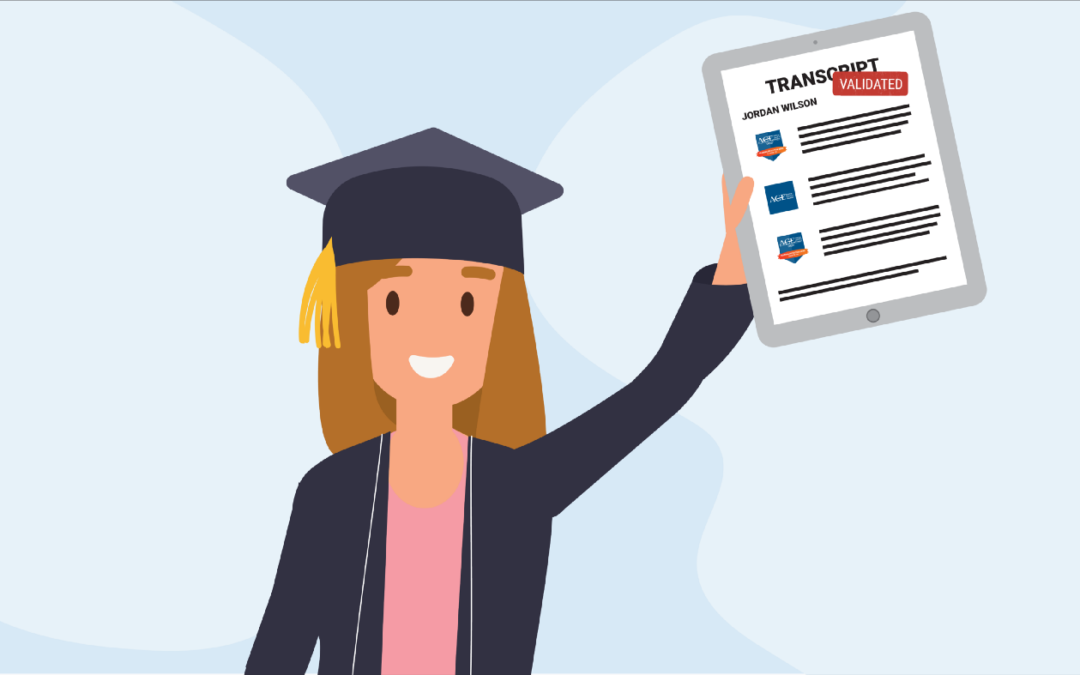ACE Education Blockchain Initiative — What Is Blockchain? — YouTube
Blockchain is best known as the foundational technology behind cryptocurrencies like Bitcoin, but how could it be used in education?
The Blockchain Innovation Challenge, part of the Education Blockchain Initiative partnership between the American Council on Education (ACE) and US Department of Education, sought to answer that question. Published on December 9, 2021, ACE’s final report on the Education Blockchain Initiative shares the objectives, outcomes, challenges, and implications of the Blockchain Innovation Challenge.
The $900,000 competition surfaced bold ideas exploring how blockchain technology can empower individuals, enable lifelong learning, and unlock opportunities for economic opportunity and social mobility, attracting applicants who collectively serve more than 1.5 million postsecondary students. The following questions guided the Challenge:
· How can learning be better documented, validated, and shared? How can this be done regardless of when and where the learning occurred?
· How can empowering learners from underserved and disadvantaged populations with greater control or ownership of their learning records help them to identify and engage with learning and employment opportunities?
The Challenge encouraged applicants to take an ecosystems-first design approach. An ecosystems-first design approach involves bringing together networks of institutions and organizations to solve problems, leveraging interoperability and open standards, and advancing data literacy and agency among end users. In addition, the final report identified centering the needs of end users as a critical element of success — developers must include end users in the design process and create solutions that are intuitive and easy to utilize.
Four projects were selected as the competition winners, addressing a variety of challenges in education: the sharing of guardianship records and consent for systems-involved students; teacher ownership of their credentials; transparency in the college transfer process; and students’ free access to and control of their academic records.
In early 2022, OET will publish a series of blogs featuring each of the winning projects.
The Education Blockchain Initiative was launched in February 2020 to explore novel applications of blockchain technology to address complex challenges in education. The Initiative focuses particularly on understanding how blockchain technology can facilitate the secure, traceable, and verifiable exchange of educational data among institutions in the learning and employment ecosystem and allow individuals greater control over their learning records and agency in pursuing economy opportunities.
In addition to overseeing the Blockchain Innovation Challenge, the Initiative published resources elevating blockchain technology applications in education, including:
· Video: What is Blockchain?
· Blog: “Learner Records: If You Build It, Will They Use It?”
· Report: Connected Impact: Unlocking Education and Workforce Opportunity Through Blockchain
· Report: Connecting the Pieces: The Benefits of Blockchain for Higher Education
The COVID-19 pandemic has resulted in disruptions in learning, such as the closures of institutions of higher education and student financial distress. Student access to and control over their academic and employment records can ease transitions between institutions, facilitate learning continuity, and open pathways to jobs. Blockchain technology has the potential to address this issue, providing students with needed ownership over their credentials and the ability to share them freely and verifiably with institutions and employers. The Office of Educational Technology is committed to supporting emerging technologies, such as blockchain, that can advance equity and access in education.
Source: Department of Education


